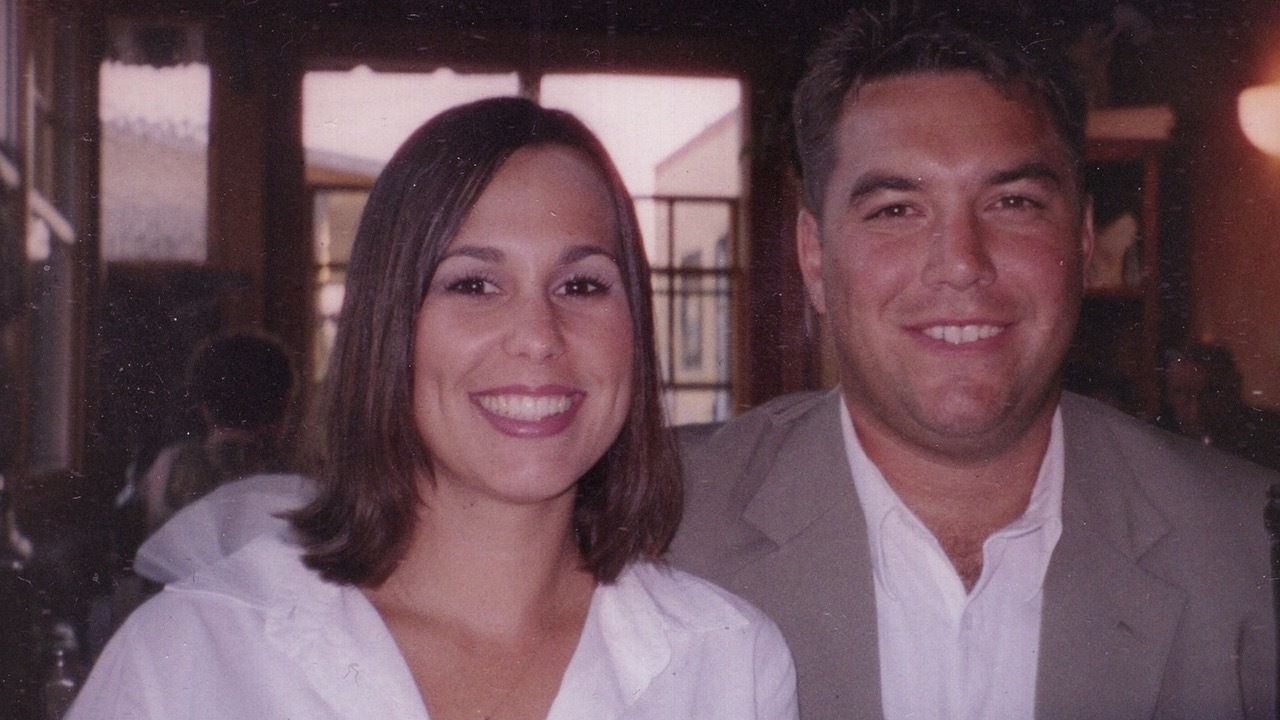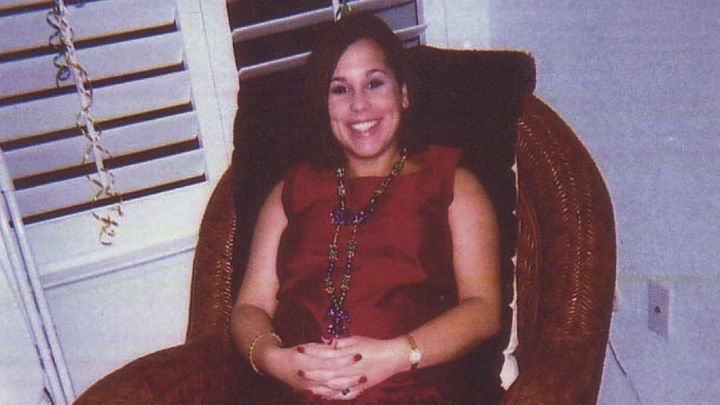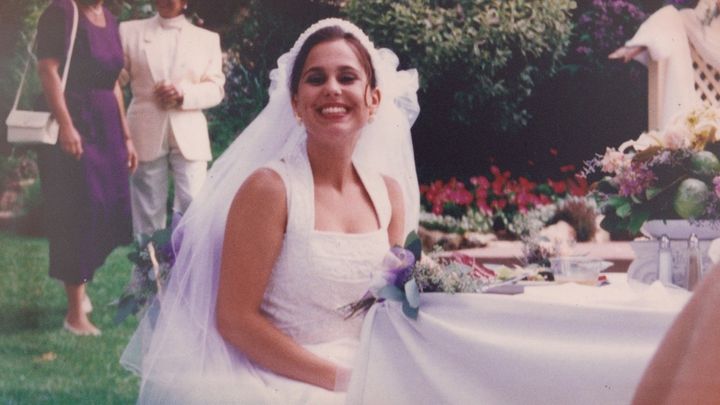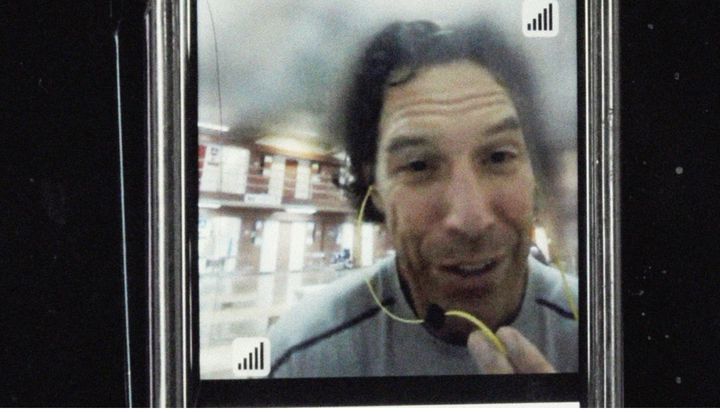Scott Peterson Is Talking In A New Docuseries About His Wife’s Murder, But Should We Listen?
Dive deep into true crime cases and follow the latest headlines with HuffPost’s Suspicious Circumstances newsletter. Sign up here.
Scott Peterson, convicted in 2004 of killing his wife, Laci Peterson, and their unborn son, has never exactly flown under the radar. But the case that dominated cable news and morning shows in the ’00s is once again inescapable, with two streaming docuseries that debuted this month.
Advertisement
Perhaps surprisingly, over their collective five hours of television, both series offer new material and insights into the disappearance, arrest and trial that were exhaustively covered as they happened and in the following years. But they take wildly opposing approaches in their focus: Peacock’s “Face to Face With Scott Peterson,” which dropped Tuesday, trumpets itself as being the first time the convicted murderer has spoken on camera since before his 2003 arrest. In contrast, “American Murder: Laci Peterson,” which debuted last week and is currently the top-rated show on Netflix, turns the spotlight on his victim, who has been largely eclipsed in the countless news stories, documentaries and podcasts about a case that has fascinated the public for decades.
“I just wanted her to be remembered as a person and not as a victim of murder,” Laci Peterson’s mother, Sharon Rocha, said on “American Murder.”

Courtesy of Netflix
Scott Peterson, now 51 and serving a life sentence in California, already dominated headlines earlier this year when the Los Angeles Innocence Project took on his case, claiming in court documents that “newly discovered” evidence should exonerate him. A judge has allowed new DNA testing of one piece of evidence, but the majority of the claims made by his lawyers — and by his sister-in-law and most vocal advocate, Janey Peterson — have previously been discredited and rejected by the courts. The court is currently considering his defense team’s request for hundreds of pieces of evidence related to a burglary across the street from the Petersons’ house — what prosecutors call a “fishing expedition.” It’s unclear when the judge will make a decision.
Advertisement
“American Murder,” directed by the award-winning true crime documentarian Skye Borgman, puts the focus back on Laci Peterson, humanizing her through interviews with her family and close friends, along with never-before-seen photos and video footage that captures her bubbly, infectious personality.
The series adroitly demonstrates why Scott Peterson was convicted in the first place — including interviews with two of the jurors. It’s grounded in facts versus speculation while acknowledging that some theories by prosecutors were later discounted.
“American Murder” captures the shocking twists and turns of the investigation as they unfolded in real-time, culminating in 27-year-old massage therapist Amber Frey’s bombshell revelation that she was dating Scott Peterson. More evidence came out at trial that painted him as brazen and callous — including the infamous phone call he made to Frey from a candlelight vigil for his wife in which he pretended to be celebrating the New Year’s Eve fireworks in Paris.

Courtesy of Netflix
Peterson never admitted what he did to his wife, and no one witnessed the crimes. Like most criminal convictions, Peterson was found guilty based solely on circumstantial evidence — a point unduly inflated by his supporters and others who argue that unresolved questions about the case cast his conviction into doubt.
Advertisement
Rocha said she asked just one question when police first told her that her son-in-law had lied to and cheated on her daughter.
“Why did he have to kill her?” she asked. “He didn’t have to kill her.”
Peacock’s series, in contrast, rehashes old theories by Peterson’s supporters that formed the basis of previous innocence-skewing documentaries like the 2017 A&E docuseries “The Murder of Laci Peterson.” To her credit, “Face to Face” filmmaker Shareen Anderson includes interviews with detectives who worked on the case and doesn’t shy away from the evidence that incriminated Peterson. But the overarching narrative is that just because he was a “liar and [a] cad” doesn’t mean he’s a murderer.
“Face to Face” lacks the empathy that permeates “American Murderer” — for the family and friends who endured not only the tragic loss of Laci Peterson but the betrayal of her husband; and for Frey, who was reluctantly thrust into the spotlight and played a crucial role into the investigation and conviction of Scott Peterson.
Running through “Face to Face” are the narratives by Janey Peterson and Scott’s sister Susan Caudillo that they wanted to find Laci Peterson’s “real” killer. In the exclusive prison interviews — filmed with a camera trained on a video call — Scott Peterson goes even further, arguing that because the police focused so closely on him, they downplayed the burglary across the street, neglected other potential suspects and interfered with the search for Laci Peterson.

Courtesy of Netflix
Advertisement
What he isn’t acknowledging, however, are the many reasons Scott Peterson himself caused investigators to focus on him in the first place.
Peterson told countless lies to the police, his wife’s family and his girlfriend. Arguably the most damning is that he secretly bought a boat, which he towed 90 miles to a marina and piloted across the San Francisco Bay to the same area where the remains of his wife and the fetus she planned to name Conner were later found, on the same day he told Frey that he had “lost” his wife and was going to be spending the holidays for the first time without her.
“He is the source of his own undoing,” said Sharon Hagan, a criminal investigative profiler who worked on the Peterson case for the Modesto Police Department, said in “American Murder.”
“In order to maintain Scott’s innocence, his family has had to endorse improbable theories about the incompetence of the investigators and their belief that these burglars are responsible for Lacey’s disappearance,” Hagan said. “And in all sincerity, I can only say that it’s not true.”

Advertisement
In his prison interviews, Scott Peterson also tried to downplay his affair with Frey.
They were just “having sex,” he said, claiming Frey “tried to turn it into a relationship after the fact.”
He blamed the revelation that he cheated on the police’s failure to find his wife alive.
“I really did everything I could to bring my family home, and that included keeping my cheating with Frey from people. I didn’t tell people because I wanted the search to continue. … I was absolutely wrong, but I embraced the truth on that. You know, it’s a horrible truth. It’s devastating. I feel such shame and guilt that me having that sex with Amber Frey caused all that, that they didn’t look for [Lacey] alive,” he said.
But juror Mike Belmessieri said in “American Murder” that the affair itself didn’t factor into the jury’s decision.
“He’s a cad. He cheated on his wife — whoopee,” he said. “It’s not relevant. What’s relevant is, show me what would lead me to conclude he is guilty.”
Rocha told the court in July that Scott Peterson’s numerous efforts to overturn his conviction feel like “ripping the scab from the wound.”
Advertisement
“I believe this is not about proving his innocence but, instead, his relentless pursuit of freedom from prison,” she said in a victim’s impact statement read aloud by prosecutors.
“This is not justice for Laci and Conner. He is guilty of murdering them. When will this end?”
Need help? In the U.S., call 1-800-799-SAFE (7233) for the National Domestic Violence Hotline.

Comments are closed.